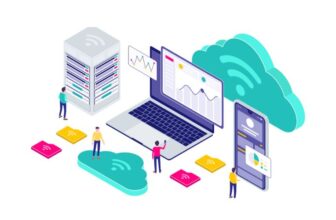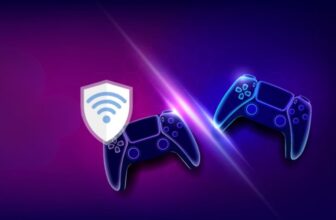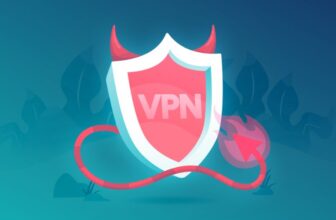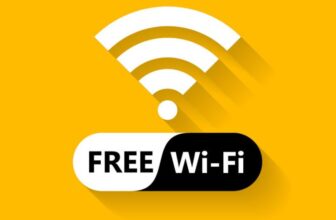
Virtual Private Networks, or VPNs, help to secure your online privacy by encrypting your traffic and passing it through a server located elsewhere. It helps to conceal your online behavior from other users and your internet service provider.
How a VPN operates?

There are several VPN service providers available, with varying capabilities and price points. It’s imperative that you consider your needs and budget while choosing a VPN.Among the things to think about are:
- Security: Opt for a VPN that employs robust encryption protocols, such IKEv2 or OpenVPN.
- Privacy: Select a VPN that doesn’t track your activities and has an excellent privacy policy.
- Speed: Look for a VPN service provider with a vast network of servers dispersed over multiple locations.
- Features: Split tunneling, obfuscation, and kill switches are among the extra features that certain VPNs offer. Think about the characteristics that are essential to you when selecting a VPN.
As soon as you’ve decided, you can start using a VPN to protect your online privacy. Here are some pointers:

- Prior to internet browsing, establish a VPN connection. By doing this, all of your traffic will be encrypted, protecting your online activities from prying eyes such as your ISP and the authorities.
- Every time you use public Wi-Fi, use a VPN. If you’re not utilizing a VPN, public Wi-Fi networks are frequently insecure, making it simple for hackers to intercept your traffic.
- Use a VPN to gain access to restricted websites and information. By using a VPN, you may bypass geo-restrictions and access content and websites that are blocked in your region.
- To protect your privacy when playing games or watching films online, use a VPN. By keeping your ISP from limiting your bandwidth, VPNs can enhance your streaming and gaming experiences.
Here are some further pointers for safeguarding your internet privacy with a VPN:

- For your VPN and other internet accounts, use secure passwords.
- Your online accounts are further secured using two factor authentication (2FA). Your online accounts are further secured using two factor authentication (2FA).
- Use caution when disclosing information online. Avoid sharing private information about yourself on social media and websites.
- Update your program frequently. Software upgrades often include security fixes that could help protect you against malware and other threats.
- By following these suggestions, you can use a VPN to protect your online privacy and stop other people from seeing what you do online.
Extra advice on safeguarding your online privacy:

- Use a browser with privacy features. There are features in browsers like DuckDuckGo and Firefox Focus that can help keep your online privacy safe.
- Put ad blockers to use. You can stay safe online from tracking cookies and other risks by using ad blockers.
- When installing apps on your devices, exercise caution. Install programs only from reliable sources.
Conclusion
Check the privacy policies of any apps or websites before using them. Make sure you are aware of the methods utilized to gather and use your data. For more information visit www.coupons24x7.com.
FAQs:
Q1. What is a VPN?
Ans: VPN stands for virtual private network. It is a tool that encrypts your internet traffic and routes it through a server in another location. This makes it appear as if you are browsing the internet from that location, rather than your actual location. This can be useful for protecting your privacy, bypassing geo-restrictions, and securing your public Wi-Fi connection.
Q2. How does a VPN protect my privacy online?
Ans: A VPN protects your privacy online by encrypting your traffic and hiding your IP address.All of your traffic is routed through the VPN server when you connect to one. This means that your ISP, government, and other third parties cannot see what websites you are visiting or what data you are sending and receiving.
Q3. What are the benefits of using a VPN?
Ans: There are many benefits to using a VPN, including:
- Protecting your privacy online
- Bypassing geo-restrictions
- Securing your public Wi-Fi connection
- Improving your internet speeds
- Accessing blocked websites and content







